World War Two
All category topics on the military, political, social, and cultural aspects of the Second World War.
All category topics on the military, political, social, and cultural aspects of the Second World War.
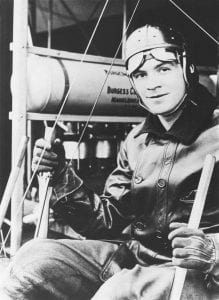
The following article on General Henry Arnold is an excerpt from Bill Yenne's book Hap Arnold: The General Who Invented the US Air Force. It is available for order now from Amazon and Barnes & Noble. The legacy of General Henry Arnold is manifest in the existence of the United States Air Force…
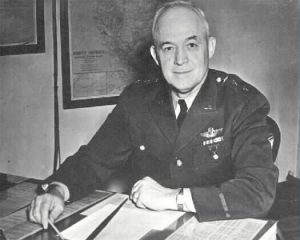
The following article is an excerpt from Bill Yenne's book Hap Arnold: The General Who Invented the US Air Force. It is available for order now from Amazon and Barnes & Noble. Hap Arnold wrote in his memoirs that “throughout the war, I tried to have the Air Force operate under certain fundamental…
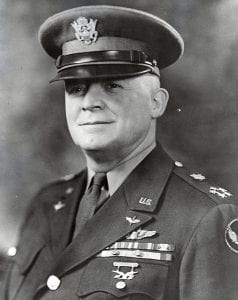
The following article is an excerpt from Bill Yenne’s book Hap Arnold: The General Who Invented the US Air Force. It is available for order now from Amazon and Barnes & Noble. Henry Harley Arnold — known as Hap Arnold — is the founding father of of the U.S. Air Force. It…
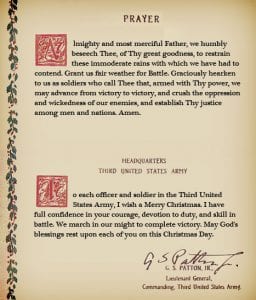
On October 22, 1944, Patton met with his commander, General Omar Bradley, and Bradley’s chief of staff to discuss plans for taking the French city of Metz and then pushing east into the Saar River Valley, a center of Germany’s armaments industry. Bradley, believing that a strong push might well…
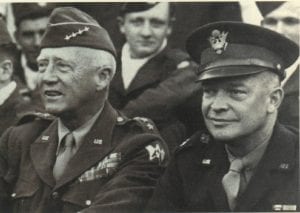
As a young officer in World War One, George S. Patton was part of the newly formed United States Tank Corps of the American Expeditionary Forces. He then commanding the U.S. tank school in France before being wounded while leading tanks into combat near the end of the war. During the interwar period, Patton remained a…
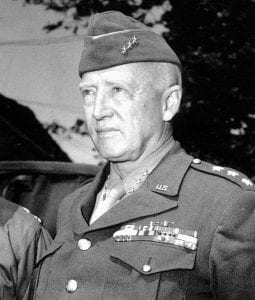
At the end of 1943, while Patton’s commanders were deciding his fate, the allied leaders—Roosevelt, Churchill, and Stalin—met in Tehran to discuss strategy for defeating Germany and plans for the postwar world. Uncertain of the role, if any, he might play in the coming invasion of Europe, Patton took a…
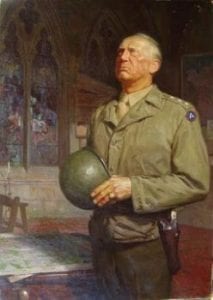
Patton held a lifelong belief that in any moment of danger, whether it be a violent engagement with the enemy on a battlefield or a moment of personal danger in a sailboat, the Lord would protect him. In countless journal entries, personal letters, and conversations, he unfailingly spoke of placing his…
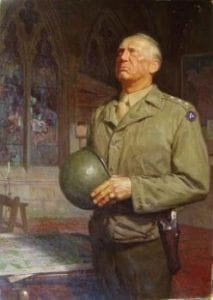
Better known for his profanity than for his prayers, George Patton was actually a devout and religious man. His profanity was merely a device to capture the attention of his soldiers. Patton’s prayers, however, reflected his deep and sincere faith in God. Throughout his life he prayed daily and attended…
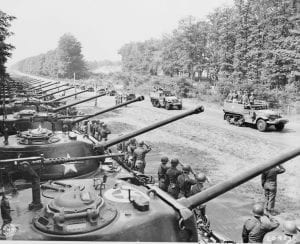
The final stage of World War II in the European Theatre commenced with the Western Allied invasion of Germany. It began with the crossing of the River Rhine in March 1945, with forces fanning out and overrunning all of Western Germany until their final surrender on May 8, 1945. Patton…
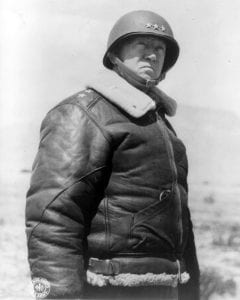
In April 1941 Patton, who had been acting commander of the Second Armored Division for six months, was given permanent command and promoted to major general. His most important priority was training men for war. One of his first acts as commander had been to build an amphitheater in the wooded hills of Fort…















